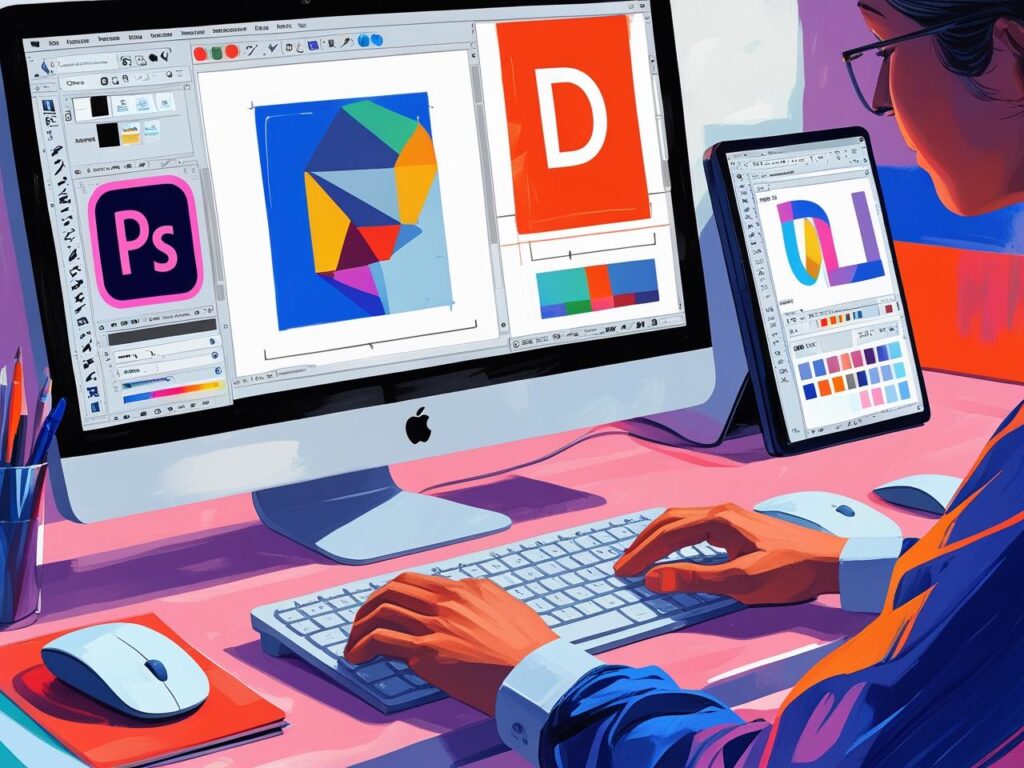Welcome to the future of business and communication. The digital landscape is always shifting, and what worked last year might not work today. This is especially true for digital marketing in 2025. It’s not just about running ads or posting on social media anymore. It’s a dynamic, data-driven field that requires a blend of creativity, technical know-how, and a deep understanding of human psychology. If you’re a student, a freelancer, or a small business owner looking to make a mark in the competitive US market, this guide is for you. We’ll explore what digital marketing truly means in the current climate and provide a practical roadmap to get you started on the right foot.
What is Digital Marketing Today?
At its core, digital marketing in 2025 is the art and science of connecting with potential customers online through various digital channels. It’s about being where your audience is—whether they are searching on Google, scrolling through Instagram, watching videos on TikTok, or checking their email. It’s a broad field, but it can be broken down into several key pillars.
- Search Engine Optimization (SEO): This is the foundation of any long-term digital strategy. It’s the practice of optimizing your website to rank higher in search engine results (like Google, Bing, and DuckDuckGo). The goal is to attract “organic” (unpaid) traffic. In digital marketing in 2025, SEO is heavily influenced by AI and the rise of “Answer Engine Optimization” (AEO), where content is created to directly answer a user’s question, often appearing in featured snippets or AI Overviews.
- Content Marketing: This involves creating and distributing valuable, relevant, and consistent content to attract and retain a clearly defined audience. This can be blog posts, videos, podcasts, infographics, and more. Quality and authenticity are more important than ever. With so much content out there, your voice needs to stand out.
- Social Media Marketing (SMM): It’s not just about getting likes. SMM is about building communities, driving brand awareness, and generating leads on platforms like Instagram, TikTok, Facebook, and LinkedIn. Short-form video content and live streams are dominating this space in digital marketing in 2025.
- Email Marketing: Often underestimated, email marketing remains one of the most effective tools for building customer relationships and driving conversions. The focus is on hyper-personalization, automation, and creating valuable email sequences.
- Pay-Per-Click (PPC) Advertising: This is paid advertising on search engines and social media. You pay a fee each time your ad is clicked. PPC allows for rapid visibility and precise targeting, making it ideal for immediate lead generation and sales. Google Ads and Meta Ads are the two biggest players.
- Performance Marketing: This is a broad term for marketing where you only pay when a specific action is completed, such as a sale, a click, or a lead. It’s a results-oriented approach that often includes affiliate marketing, PPC, and paid social media campaigns.
- Marketing Automation: This refers to software and platforms that automate repetitive marketing tasks. Think automated email campaigns, lead nurturing sequences, and social media post scheduling. Automation helps you scale your efforts without a massive team.
The US Digital Marketing Landscape in 2025
The US market is both a massive opportunity and a fiercely competitive arena. The trends here often set the pace for the rest of the world. Understanding these trends is crucial for success.
- AI is Everywhere: AI is no longer a buzzword; it’s a fundamental tool. From generating ad copy and content outlines to analyzing vast datasets for customer insights, AI is streamlining workflows and enabling hyper-personalization. Expect to see more AI-powered tools that help with everything from A/B testing to predictive analytics.
- Privacy and Data Ethics are Paramount: With stricter regulations like GDPR and new state-level privacy laws, consumers are more aware of their data. Marketers must shift from a third-party data reliance to a first-party data strategy, building trust by being transparent about data collection and use.
- The Rise of Visual and Voice Search: People are increasingly using images and voice commands to search for information. This means optimizing your content for conversational keywords and adding descriptive alt text to images is no longer optional.
- Short-Form Video and Interactive Content: Platforms like TikTok, YouTube Shorts, and Instagram Reels continue to dominate. Users want quick, engaging, and authentic content. Beyond video, interactive elements like quizzes, polls, and AR filters are becoming powerful engagement drivers.
- Omnichannel Experiences: The customer journey is rarely linear. A person might see an ad on Instagram, click a link to a blog post, sign up for a newsletter, and finally make a purchase a week later. A successful digital marketing in 2025 strategy connects these touchpoints to create a seamless, integrated experience.
How to Start Digital Marketing in the US
Starting a career or a business in digital marketing in the US can seem daunting, but it’s completely achievable with the right strategy. Here’s a detailed, step-by-step roadmap.
Step 1: Build a Strong Foundational Skill Set
You don’t need a fancy degree to start, but you do need to learn the core skills.
- SEO and Content Creation: These are the bedrock. Learn how to do keyword research, write for both people and search engines, and understand on-page and off-page SEO. Tools like Google Search Console and Google Analytics are your best friends here.
- Social Media Management: Learn how to create a content calendar, understand platform-specific algorithms, and use tools like Hootsuite or Buffer for scheduling.
- Data Analytics: This is a non-negotiable skill for digital marketing in 2025. You need to be able to read and interpret data from Google Analytics, ad dashboards, and social media platforms to understand what’s working and what isn’t.
- Copywriting: Every piece of digital marketing—from an ad headline to an email subject line—is about persuasion. Sharpen your writing skills to create compelling messages that drive action.
Step 2: Get Certified
While not mandatory, certifications from reputable organizations add credibility to your resume.
- Google Digital Marketing & E-commerce Professional Certificate: This is a great starting point for beginners, covering all the fundamentals.
- HubSpot Inbound Marketing Certification: HubSpot is a major player in the marketing automation space, and this certification will give you a solid understanding of inbound methodologies.
- Meta Blueprint Certifications: If you’re serious about social media, these certifications validate your expertise in running ad campaigns on Facebook and Instagram.
- Other specialized certifications: Consider certifications from platforms like Semrush, Ahrefs, or Coursera to specialize in specific areas like SEO or PPC.
Step 3: Gain Practical Experience
Theory is great, but practical experience is what really matters.
- Start a Personal Project: Launch your own blog, e-commerce store, or social media page for a niche you’re passionate about. This allows you to apply what you’ve learned and build a portfolio from scratch. This is your personal lab to experiment with digital marketing in 2025 techniques.
- Volunteer or Freelance for a Small Business: Offer your services for free or at a low rate to a local non-profit or a small business. This provides real-world experience and case studies you can use to showcase your skills.
- Participate in Internships: Many companies, both large and small, offer paid and unpaid internships that provide invaluable hands-on training.
Step 4: Build a Professional Network
In the US, networking is key to finding job opportunities and clients.
- Join Online Communities: Participate in digital marketing forums on Reddit, Facebook, and LinkedIn. Ask questions, share your insights, and connect with other professionals.
- Attend Webinars and Virtual Conferences: Many industry events have gone virtual, making them more accessible than ever. This is a great way to learn about the latest trends and connect with experts.
- Leverage LinkedIn: Optimize your profile, follow industry leaders, and actively engage with their content.
Step 5: Job Hunting and Career Growth
Once you have your skills and experience, it’s time to find a job.
- Craft a Killer Resume and Portfolio: Your resume should be tailored for each job application, highlighting the specific skills and achievements that the employer is looking for. Your portfolio, built from your personal projects and freelance work, is proof of your capabilities.
- Salary and Expectations: The average entry-level salary for a digital marketing specialist in the US can range from $50,000 to $65,000 annually, but this varies widely based on location, experience, and specific role.
- Remote Work is Still a Thing: A significant portion of digital marketing jobs are remote, which opens up opportunities regardless of your location within the US.
In conclusion, digital marketing in 2025 is an exciting and rewarding field. It requires a commitment to continuous learning and a hands-on approach. By mastering the core skills, getting certified, and building a strong portfolio, you can successfully launch a thriving career in the US market.


